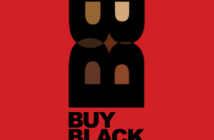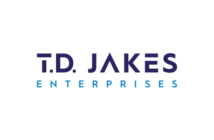As the owner of a small business, Joan wears many hats – from innovator to publicist to accountant. To bring her vision to life, she regularly collaborates with a network of vendors, with email often serving as the primary channel for communications. So, when Joan received a call from a longtime vendor about a missed payment for a recent order – a sizable payment Joan was certain she had paid several weeks earlier – her heart sank.
After cross-checking her bank statement with email correspondence to confirm she had remitted payment, Joan and the vendor arrived at the awful realization that a fraudster, posing as the vendor, had stealthily intercepted previous email correspondence between the vendor and Joan before sending Joan an invoice with new wiring instructions, which she dutifully followed.
In this case, Joan’s story is fictional, but her situation is not. Instances of fraud – and business email compromise, specifically – are playing out with increasing frequency.
As businesses of all types continue to innovate for scale and efficiency, fraudsters are fast-tracking their own capabilities with elevated sophistication and impact. Small businesses remain particularly vulnerable to fraud due to the likelihood of having fewer fraud prevention restrictions, controls and processes in place than larger organizations.
Sign up for our Daily eBlast to get coverage on Black communities from the media company who has been doing it right for over 130 years.
According to a recent survey, a staggering 80% of organizations surveyed reported being the targets of actual or attempted fraud attacks in 2023 – up from 65% in 2022. And 63% of businesses reported experiencing some form of business email compromise in 2023. Additionally, fewer than 60% of organizations have developed the written policies and procedures necessary to limit exposure to business email compromise attacks and minimize the impact of fraud.
The scenario that befell Joan provides a teachable moment for any employee who plays a role in managing cash flow and payments on behalf of an organization. What could Joan have done differently to avoid falling prey to a fraudster who impersonated her vendor? It’s important to never rely on email as the only communication method when transacting a payment. The importance of picking up the phone and speaking with a known vendor to verify payment requests cannot be overstated.
]]>
PNC encourages small business clients not to share their account numbers with vendors – because if a vendor is hacked, the account number becomes compromised and fair game for fraudsters. One option that small businesses can consider is using an encrypted account number, which prevents businesses from having to share their true account number. If the encrypted number is compromised, it is useless to fraudsters.
While the stakes for preventing and mitigating fraud have never been greater or more complex, we are committed to delivering the full scope of PNC’s insights and fraud mitigation solutions to help small businesses protect themselves from various forms of fraud.
###
DISCLAIMERS TO FOLLOW ARTICLE
]]>
These articles are for general information purposes only and are not intended to provide legal, tax, accounting or financial advice. PNC urges its customers to do independent research and to consult with financial and legal professionals before making any financial decisions. This site may provide reference to Internet sites as a convenience to our readers. While PNC endeavors to provide resources that are reputable and safe, we cannot be held responsible for the information, products or services obtained on such sites and will not be liable for any damages arising from your access to such sites. The content, accuracy, opinions expressed, and links provided by these resources are not investigated, verified, monitored or endorsed by PNC.
“PNC” and “PNC Bank” are registered marks of The PNC Financial Services Group, Inc.
Bank deposit, treasury management and lending products and services, foreign exchange and derivative products (including commodity derivatives), bond accounting and safekeeping services, escrow services, and investment and wealth management and fiduciary services are provided by PNC Bank, National Association (“PNC Bank”), a wholly owned subsidiary of PNC and Member FDIC.
Lending, leasing and equity products and services, as well as certain other banking products and services, require credit approval.
]]>
©2024 The PNC Financial Services Group, Inc. All rights reserved.
Get your AFRO A CARD today!
Help us Continue to tell OUR Story and join the AFRO family as a member. Members will receive exclusive journalism, and directly support the future of the AFRO. You can choose from three membership plans below.



